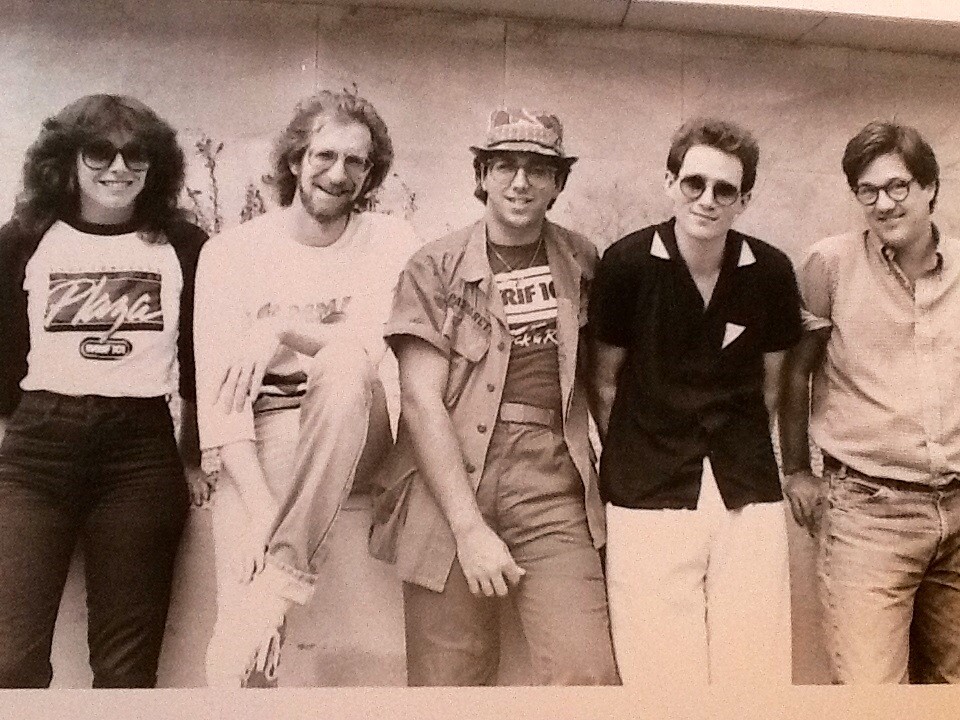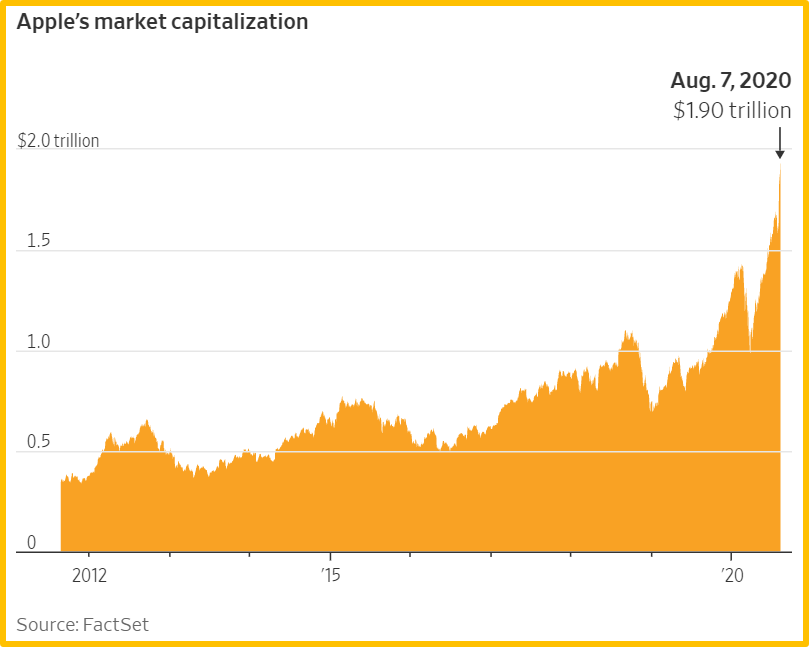
Some problems have easy fixes. Others require a more complex solution. And there are some others you can occasionally talk your way out of. This one is the former.
If you’re in a management role in radio right now – or you were at one time, you will likely be able to relate to today’s #TBT blog post. For me as a program director, it was an unnerving experience. Like so many things, however, I have gained wisdom and perspective over the years that helped me. Perhaps this story can help you.
If not, you’re permitted to smile at my story of my employee evaluation that didn’t quite go the way I anticipated it. – FJ
August 202o
True story.
I’m programming WRIF in Detroit. It’s 1982, and the station is firing on all cylinders following a near-death experience at the hands of Doubleday’s WLLZ.
I’m feeling pretty, pretty good about things, and “bonus time” is coming up. Back then at ABC, GMs had a discretionary bonus pool they could use to spiff employees. There was a set maximum I could receive, assuming I had done an outstanding job. And based on the ratings and other subjective accomplishments (in my mind’s eye, at least), I was due to receive a nice hunk of change. But like the name implied, the amount of my bonus was at the discretion of the station manager, John Hare.
When Judgement Day arrived, I was actually looking forward to the experience – and getting the news I would be receiving a fat bonus check during my next pay period.
But when I sat down with John, things didn’t go exactly the way I’d planned. He was very complimentary about the ratings, even thankful, and mentioned some of the other accomplishments I had pulled off. He reminded me I clearly had some work to do building bridges with the sales department, especially the sales managers. (More on that gnarly topic in another post on another day.)
But when John explained to me I was only going to receive a portion of my bonus that year, I was truly incredulous. Where had I come up short? How had I failed? What could possibly be missing from my stellar performance?
And he hit me right between the eyes:
“I don’t believe your replacement is on staff.”
If it was today, I might have said, “Wait…what?!” Or maybe, just WTF?!
Like most PDs, I was hyper-focused on the rating book of the moment, and perhaps the next one six months or so down the road. The last thing on my mind was the station’s programming succession plan if I took a powder. (And in fact, I did exactly that about a year later.)

We talked about the station’s assistant program director and music director – Mark Pasman and Michael Mayer respectively (both pictured left). And John expressed skepticism that either was ready to take over the WRIF “starship” if something happened to me.
And so I walked out of his office disappointed and deflated – and several thousand dollars short of what I had been expecting. But of course, Hare was right.
Great managers don’t just do their jobs spectacularly. They need to have the enterprise and its future in mind at all times. And the very best can answer the tough question, “What if” something happened to me?
Who’s next?
During that memorable and disappointing employee evaluation, I didn’t have the answer. And so instead, I got a dose of “tough love.”
I thought about his words a lot during those next many months, trying to delegate as much as possible to Michael and Mark, while attempting in my own dysfunctional way to help them along.
And as it turned out, each had a shot at the PD position after I left. And both did a masterful job while I was flying around signing on Classic Rock stations in Kansas City, L.A., and D.C.
Now as a business owner, the gnawing pressure of having a succession plan has never eased up. There’s an entire TV series, HBO’s spectacular  Succession, that will start its third season of episodes around this tough topic. Loosely based on the Murdoch media family, Succession presents the ruthless, cutthroat side of a family businesses, in this case, the diabolical, scheming Roy “kids” vying to replace their iconic father, Logan Roy.
Succession, that will start its third season of episodes around this tough topic. Loosely based on the Murdoch media family, Succession presents the ruthless, cutthroat side of a family businesses, in this case, the diabolical, scheming Roy “kids” vying to replace their iconic father, Logan Roy.
Who’s next?
It may be fiction, but those real-life decisions about who will fill the boss’ shoes (or pumps) happen at companies, businesses, and radio stations all over the world – often with very high stakes.
I thought about that when I read a recent Wall Street Journal article by Tripp Mickle: “How Tim Cook Made Apple His Own.”
It’s a detailed analysis of how the serene, unassuming Cook succeeded the flamboyant, brash Steve Jobs (who reportedly was not a big fan of succession planning). When you think of it, Jobs had to be the toughest CEO to replace, given his amazing impact on the company he co-created, was ousted from, and then brought back from the brink of disaster.
And when you think about other companies that faltered after an iconic leader stepped down or passed the baton – Microsoft and Bill Gates, GE and Jack Welch, Ford and Alan Mulally – the pressure was on Cook.
If you remember back when Jobs passed away in 2011, the smart money was on Apple to lose its fastball. And when Cook was named to replace him – chosen by Jobs himself – many analysts openly questioned the logic.
After all, the two men were very so different. Jobs was the ultimate “product person,” accustomed to throwing the long bomb. His presentations on the Apple stage were sheer mastery.
Cook, on the other hand, is an incrementalist. He is more low-key and data-driven. Social and societal issues – like bullying – get his attention. In short, he’s a completely different leader than his predecessor.
All that said, since taking over for Jobs nine years ago, Apple’s market capitalization has quintupled, from $350 billion at the time of Jobs’ death to nearly $2 trillion now.

While Jobs pioneered innovations like iPod, iPhone, and iPad – intensely involved in all key product development meetings – Cook takes a very different approach. At a key meeting in 2012 to review a forerunner of Apple Watch, Tim Cook’s first big launch, the CEO didn’t show-up for this gathering. No way that happens during Jobs’ watch.
But that’s the point. Cook is more of a plodder, obsessed with details and numbers. Rather than develop “the next big thing” for Apple, the company’s product accomplishments since he took over have been to support the incredibly profitable and popular iPhone with devices like the watch, AirPods, and content services.

Whether it’s a radio station or one of the biggest companies in the world, the PD or CEO doesn’t own the place. They are merely stewards of the brand, leaving an imprint – but ultimately leaving so someone else can take over.
Think about the biggest, most famous, and more successful programmers in broadcast radio. Each had a run with their station that had a beginning, middle, and an end. Ultimately, they move over to make room for their successor.
 It is especially difficult to replace a superstar, and the mistake managers often make is to look for a successor with similar characteristics and traits. As the WSJ‘s Mickle notes, “Apple needed a new operating style after losing someone irreplaceable.”
It is especially difficult to replace a superstar, and the mistake managers often make is to look for a successor with similar characteristics and traits. As the WSJ‘s Mickle notes, “Apple needed a new operating style after losing someone irreplaceable.”
And as is likely the case with your radio station, the same conditions apply. Cook didn’t try to mirror or imitate Jobs – he couldn’t pull that off, nor is that what the company needed. Instead, he let his unique skill set define Apple’s new course.
Radio’s best brands need a succession plan, especially under today’s highly stressful conditions. The fact there are fewer employees in the station – and the company – makes your challenge much more difficult than mine was more than 40 years ago.
And here’s a fascinating postscript. Yesterday, Bloomberg announced Tim Cook’s net worth has exceeded the $1 billion mark – an amazing accomplishment for someone who was not a founder of the company. The majority of his fortune has come from “equity awards” Cook has achieved since taking over Jobs.
In other words, he’s made all his bonuses.
Look down your bench, and answer this question:
Who’s next?
P.S. Earlier this year, two things happened at Apple. They released their long-awaited Vision Pro headset that will cost you $3,500 to buy. The introduction by most accounts has been lackluster to be kind. At the same time, Apple has blown past the $3 billion threshold while the company stock is near its all-time high. Since the time this post was originally written, Tim Cook’s net worth is now north of $2 billion. Apple’s succession plan appears to be working.
And on a sad note, Julie Finkel (pictured above in the WRIF photo) passed away eight years ago last week. We miss her. May her memory be a blessing. – FJ
- What About Bob? - March 12, 2025
- Inside “3 Minutes” – An Exclusive Interview With Nielsen’s Rich Tunkel - March 11, 2025
- Black Thursday At Audacy - March 10, 2025





Leave a Reply